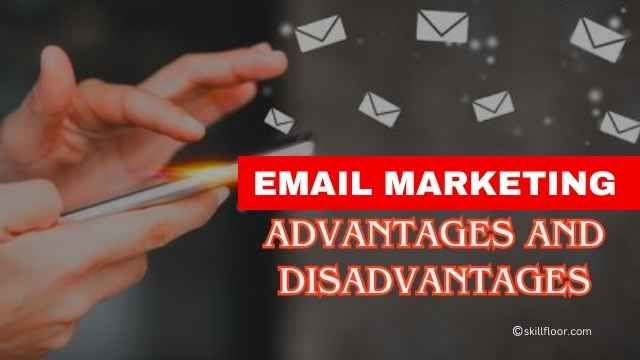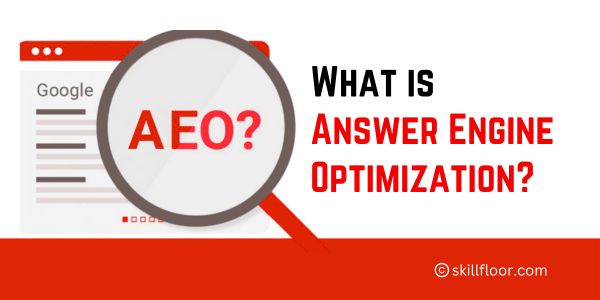Email Marketing Advantages and Disadvantages
the advantages and challenges of email marketing, a cost-effective tool for personalized communication, audience engagement, and boosting sales.

Why does email marketing play such a vital role in digital marketing? It's because it enables companies to engage with their customers directly, create enduring connections, and increase sales despite certain difficulties along the way.
Businesses in today's business environment are constantly searching for new methods to maintain contact with their clientele. Maintaining communication is essential for managers of both small and large businesses, and email marketing is still one of the best ways to achieve this.
The majority of people check their email every day; there are more than 4 billion subscribers globally. Reaching out to clients personally is an excellent method to avoid the cacophony of social media. However, drawing attention is difficult in an inbox overflowing with promotional emails, and breaking email marketing guidelines might result in spam filters or legal problems.
What is Email Marketing?
Businesses may communicate with their audience directly through email by using email marketing. To foster connections, increase sales, and maintain customer engagement, entails providing newsletters, specials, or updates to your consumers.
Effective email marketing enables companies to target particular groups or individuals with pertinent material and provides individualized communication. Although it needs careful preparation to avoid typical dangers like spam filters, it's an inexpensive, powerful tool that may help boost consumer engagement and brand loyalty.
Importance of Email Marketing
Because it enables companies to communicate directly with their audience, email marketing is essential to digital marketing. The flexibility to customize messages is a major factor in their effectiveness. Emails customized for certain consumer categories had much greater open and click-through rates than bulk emails sent to a broad audience, according to research.
For example, campaigns that take advantage of customization and segmentation frequently provide noticeably higher outcomes. Targeted emails perform better in terms of engagement than other types, according to a campaign analysis tool. This is comparable to how businesses like Amazon provide tailored suggestions based on each customer's unique purchasing patterns. Their increased engagement numbers are a reflection of this data.
Gaining your audience's trust is facilitated by using segmentation and customization. Email subscribers are more likely to open and connect with relevant information that relates to their interests or past brand experiences. This strengthens your ties with customers over time and makes your email marketing plan more successful.
Advantages of Email Marketing
1. Cost-Effective
Businesses may effectively contact their audience at a lower cost by using email marketing. It has a lower investment need and yields a higher return on investment (ROI) than traditional advertising.
Businesses may expand their operations without going over budget if they have access to reasonably priced email marketing solutions. It's a terrific alternative for businesses of all sizes since you can deliver messages to hundreds or thousands of consumers for a fraction of the expense of traditional marketing channels, like print advertisements or TV commercials.
2. Direct Communication
Connecting with your audience directly is one of the main benefits of email marketing. Your communication bypasses platform diversions and travels directly to their inbox.
You may personalize content with email marketing by addressing clients by name and adjusting messaging to suit their interests. Your communication will become more meaningful and pertinent as a result of this straightforward approach to connection building. You can be sure that there will be a concentrated exchange because you will be reaching them through their email rather than through social media or search engines.
3. Personalization
One of the main benefits of digital communication is personalization. It gives companies the ability to create communications that are specifically tailored to the requirements and interests of each client, increasing the significance of interactions.
Companies may segment their audience based on behaviors, past purchases, or preferences with customized email marketing. With this strategy, consumers are guaranteed to receive material that is specifically suited to them, which boosts engagement and forges closer bonds with the company. It increases the likelihood that recipients will respond favorably to your message by making them feel appreciated.
4. Measurable Results
Measurable outcomes can be tracked with email marketing, which is one of its many advantages. Metrics like open rates and click-through rates make it simple to keep an eye on the effectiveness of your efforts.
Businesses may learn what's working and what needs improvement by integrating email marketing into larger digital marketing strategies. Because of the continual adjustment made possible by this data-driven strategy, campaigns in the future will be more successful. You may improve engagement and get better results by modifying your targeting and content based on the analysis of the results.
5. Automation
Email campaign management is facilitated by automation, a strong function. Companies may communicate with their audience more efficiently by using it to provide timely and relevant communications without requiring manual labor.
Your digital marketing approach will be more efficient and time-saving if you include email marketing automation. Processes that are automated, such as follow-up emails or welcome emails, guarantee that clients receive the appropriate information at the appropriate time. This increases engagement and frees up time to concentrate on other business-related duties by fostering leads and maintaining connections with little work.

6. Wide Reach
Email marketing has an amazing global reach and enables companies to interact with a sizable audience in various geographical areas. It's a really powerful method of reaching a large audience with your message.
Reaching millions of consumers worldwide is certain when you include email marketing in your digital marketing campaigns. Whether you're introducing a new product or releasing significant information, you can interact with thousands of subscribers with just one click. Email is an effective tool for any marketing plan because of its wide audience reach and capacity for target segmentation.
Disadvantages of Email Marketing
1. Spam Filters
Email marketing frequently faces the difficulty of spam filtering. Even carefully written emails may get marked as spam, which keeps them out of your audience's inbox and lowers exposure and interaction.
To ensure your emails don't end up in spam, it’s crucial to follow best practices. In the context of email campaigns and broader online marketing strategies, using clean lists, avoiding spam-trigger words, and ensuring proper authentication can improve deliverability. This helps ensure that your emails reach their intended recipients, boosting your campaign’s success and avoiding the dreaded spam folder.
2. Inbox Overload
Inbox overload comes when consumers get too many emails every day, making it challenging for them to interact with every message. Lower open rates and less efficacy may result from this.
Businesses utilizing targeted email campaigns as part of their online marketing efforts should prioritize quality over quantity to stand out in an overcrowded inbox. Delivering pertinent, worthwhile material regularly guarantees that your emails are read and valued rather than disregarded. By keeping your communication in check, you may avoid oversaturating your subscribers and maintain the effect of your communications.
3. Unsubscribes
Recipients who experience overload or disinterest in the material they receive tend to unsubscribe. Those who get too many emails or irrelevant messages may decide to unsubscribe from your communications completely.
It's critical to customize your email messages as part of a larger digital strategy to reduce unsubscribes. Sending subscribers valuable, relevant information should be your main priority. Providing simple options for email frequency and content can also help you keep your audience interested and prevent them from unsubscribing.

4. Legal Regulations
When conducting email marketing, laws like the GDPR and CAN-SPAM must be taken into account. These regulations make sure that companies protect user privacy, but breaking them can result in severe fines and punishments.
These guidelines must be strictly adhered to when integrating email marketing into your larger digital efforts. This entails obtaining express authorization prior to sending emails, offering a simple unsubscribe option, and guaranteeing openness regarding the usage of consumer data. Maintaining compliance keeps you out of problems with the law and fosters trust with your audience.
5. Design and Technical Issues
Email campaign success can be adversely affected by technical and design flaws. Email clients and devices may not all support effectively displaying emails, which might result in a bad user experience and lower engagement.
Your emails will look fantastic on desktop and mobile devices if you include responsive design in your email campaigns as part of a comprehensive digital strategy. Senders' interactions with your material may be greatly enhanced by testing emails on various platforms and addressing any broken links or formatting problems. This will increase the efficacy of your campaign as a whole.

6. Time-Consuming Optimization
Email campaign optimization might take a lot of time. To make sure your communications are compelling and successful for your audience, you must constantly test subject lines, edit content, and track results.
Frequent testing and tweaking are crucial when running email campaigns as part of a larger digital marketing plan. Maintaining material current and pertinent, entails A/B testing, enhancing target segmentation, and content updates. Even though optimization is time-consuming, it is essential to raising engagement and getting better long-term outcomes from your marketing campaigns.
Effective Email Marketing Strategies
-
Segment Your Audience: Send more relevant material to your subscribers by grouping them according to their behavior or interests. Personalized experiences are facilitated by this, increasing engagement levels overall.
-
Use Compelling Subject Lines: Creating an engaging subject line for your emails can draw readers in and motivate them to open them, increasing engagement and campaign performance.
-
Incorporate Visuals: Emails become more interesting when they include photos or infographics. Visual components break up text, making your material more interesting and simpler to consume.
-
Include Clear CTAs: By including obvious calls-to-action in your emails, you may increase the success of your campaign by encouraging readers to do a certain action, like visiting your website or making a purchase.
-
Optimize for Mobile: Since many people read their emails on smartphones, you must make sure your emails are suited for mobile devices. Designing for mobile devices enhances accessibility and user engagement.
-
Leverage User-Generated Content: Including user-generated content, such as endorsements or reviews, increases credibility and fosters stronger ties between your brand and your audience by fostering trust and authenticity.
What is Email Marketing Campaign
Emails that are specifically tailored to a subscriber list constitute an email marketing campaign. Encouraging activities such as purchases or sign-ups is its main objective, along with sharing informative material and engaging the audience. These kinds of ads assist companies in cultivating connections and fostering patronage.
How to Get Started with Email Marketing Campaign
1. Define Your Goals
Start by establishing specific goals for your email marketing initiatives, such as improving sign-ups, increasing sales, or growing brand recognition through focused promotions.
2. Build an Email List
By providing incentives like discounts or access to special content, you may attract subscribers by using sign-up forms on your website or social media accounts.
3. Choose an Email Platform
Choose an email platform that is straightforward to use, such as Mailchimp or Constant Contact, to handle your campaigns so that performance tracking and delivery are simple.
4. Segment Your Audience
To give them relevant and customized communications that meet their individual requirements and preferences, group your subscribers according to their activities or interests.
5. Create Engaging Content
Compose engaging content that catches readers' attention with attention-grabbing headlines and useful information that motivates readers to act.
6. Design Mobile-Friendly Emails
Since many individuals check their inboxes on phones and tablets, make sure your emails are mobile-friendly to ensure higher interaction.
7. Schedule and Automate
Send follow-ups, reminders, and welcome emails automatically with automation technologies to ensure timely communication without having to send each email by hand.
8. Track and Analyze Performance
To evaluate the effectiveness of your emails, track important metrics like open rates and conversions. Then, adjust your approach in light of the data.
Email marketing is still one of the best ways for companies to connect with customers, promote engagement, and boost revenue. It provides a straightforward means of establishing a connection with your audience, enabling tailored and significant communication. Even though there are obstacles to overcome, including avoiding spam filters and making your message stand out in a congested inbox, email marketing may greatly increase the success of your company when done correctly. It offers the adaptability to accomplish your marketing objectives, from focused campaigns to automation and quantifiable outcomes. Through consistent optimization and adherence to best practices, businesses can leverage email marketing to build their audience and foster long-lasting connections with customers.





























































